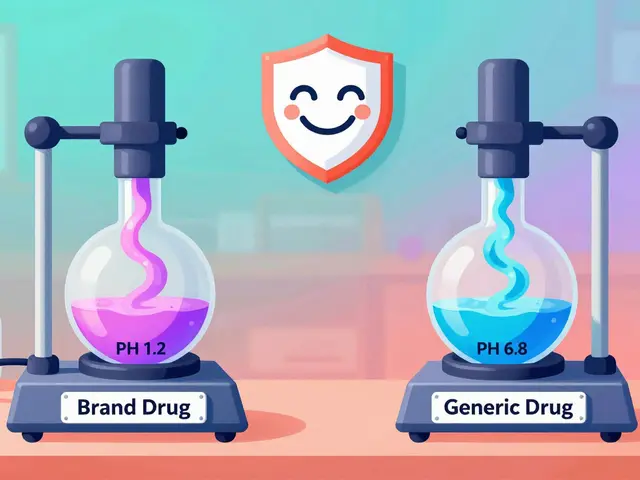Bioequivalence Waivers: When the FDA Allows Generic Drugs to Skip Human Trials
January 3 2026Memory support: simple habits and safe supplement advice
Want clearer recall and fewer "where did I put my keys" moments? Memory support isn’t magic — it’s habits, basic checks, and smart choices. This page gives clear, useful steps you can try today and points out when a supplement might help.
Daily habits that help memory
Sleep matters. Aim for 7–9 hours and keep a regular schedule. Memory consolidation happens during sleep, so late nights and erratic sleep hurt recall.
Move regularly. Brisk walking, swimming, or cycling for 30 minutes a day boosts blood flow to the brain. You don’t need intense workouts — consistency beats extremes.
Use focused practice. Want to remember names or facts? Use spaced repetition: review info several times over days. Break big tasks into short, focused sessions instead of long, distracted work.
Cut down on multitasking. Switching tasks makes it harder to store memories. When you want to remember something, give it full attention for a minute. It helps more than you expect.
Mind your diet and hydration. Include sources of omega-3 (fatty fish or algae), leafy greens, berries, and whole grains. Drink water through the day — mild dehydration lowers focus and recall.
Manage stress. High, prolonged stress impairs memory. Short breathing exercises, a 10-minute walk, or quick mindfulness breaks reduce stress and protect thinking skills.
Supplements and when they help
Supplements can help, but only in certain situations. If you have a clear deficiency (like low B12 or vitamin D), fixing it often improves memory. Get tests and a doctor’s advice before starting supplements.
Omega-3 (DHA) is one of the more consistently useful options, especially if your diet lacks fatty fish. Citicoline and phosphatidylserine show some benefits for focus and memory in adults, but effects are modest and vary by person.
Galantamine (sold as Reminyl in some places) is a prescription drug used for Alzheimer’s. It can help certain memory problems but needs a doctor’s supervision because of side effects and interactions. Don’t use prescription meds without a prescription and medical advice.
Avoid overhyped nootropics and stacks that promise instant brain upgrades. Many lack good human data and can interact with other meds. If something sounds too good to be true, ask a clinician first.
Final quick checklist: sleep well, move daily, eat brain-friendly foods, limit distractions, and test for key deficiencies before trying supplements. If memory loss is sudden, worsening, or affects daily life, see a doctor — it could be a treatable medical issue.
Explore our guides for deeper reads — from galantamine details to safe online pharmacy tips — and pick the approaches that match your health needs and lifestyle.
 5 Jan
5 Jan
Enhancing Executive Function with Donepezil: A Deeper Dive
Donepezil, a well-known medication for Alzheimer's treatment, is gaining attention for its potential positive impact on executive functioning. This article dives into the ways Donepezil might assist in sharpening decision-making, improving attention, and boosting problem-solving skills. By exploring the drug's effects on certain cognitive faculties, readers can better understand how it extends its benefits beyond memory support. We also analyze scientific studies to shed light on the promising shifts Donepezil can bring to cognitive health.
Read More...




